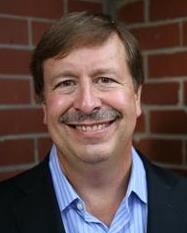Anthony Grace, MD, PhD, to Deliver Keynote at BioConference Live Neuroscience 2015


Yorba Linda, CA (PRWEB) March 05, 2015
Anthony Grace, PhD, Distinguished Professor of Neuroscience, Professor of Psychiatry and Psychology Department of Neuroscience, University of Pittsburgh, will deliver a keynote presentation at the upcoming BioConference Live Neuroscience, a two-day online event highlighting recent advances in neuroscience.
The webcast, titled “Dopamine System Dysregulation in the Pathophysiology of Schizophrenia and Depression,” is scheduled for Thursday, March 18, from 9 a.m. to 10 a.m. Pacific Time. Attendance is free.
The dopamine-containing neurons of the midbrain have been implicated in a broad array of psychiatric disorders, ranging from schizophrenia to drug abuse and depression. However, studies seem to indicate that it is not the dopamine neurons themselves that are responsible for these pathological states, but instead the disorders appear to arise due to a disruption of dopamine neuron regulation by afferent inputs. Dopamine neurons recorded in vivo are known to exhibit multiple functional activity states, including baseline tonic firing and phasic activation in response to salient stimuli. Phasic burst firing is believed to be the behaviorally relevant “signal” of the dopamine neuron, whereas the level of tonic discharge represents the “gain” or the level of amplification of this signal. This tonic gain is differentially regulated by multiple brain regions, including the hippocampus, the amygdala, and the prefrontal cortex.
Disruptions in these regions can interfere with the normal tonic/phasic balance within the dopamine system. Electrophysiological and behavioral studies in animal models of psychiatric disorders, as well as human imaging studies in patients, suggest that this disruption may underlie the pathological state of the dopamine system that is present in psychiatric disorders. Specifically, Dr. Grace found that hippocampal hyperactivity in schizophrenia may be responsible for the hyperdopaminergic state of psychosis, whereas prefrontal cortical-amygdala overdrive diminishes reward-related dopamine neuron activity leading to anhedonia in depression. This type of information can contribute both to a better understanding of the pathophysiology of major psychiatric disorders, as well as glean insights into novel avenues of treatment and potentially in preventing the emergence of these disorders.
Dr. Anthony A. Grace is a Distinguished Professor of Neuroscience and a Professor of Psychiatry and Psychology at the University of Pittsburgh in Pittsburgh, PA. Dr. Grace has been involved in translational research related to the dopamine system for over 30 years. His early work pioneered the mode of action of antipsychotic drugs, and the identification and characterization of dopamine-containing neurons, and was the first to provide a means to quantify their activity state and pattern in a way that is the standard in the literature. His current work involves novel treatments for schizophrenia and its prevention, the role of dopamine in anhedonia and affective disorders, and the mode of action of ketamine and novel antidepressant drugs.
The BioConference Live Neuroscience virtual event, presented by LabRoots, will be held from March 18 to 19. It features a roster of renowned industry experts speaking on a variety of topics in interactive live-streaming video sessions, with time set aside for attendees’ questions.
For full details and free registration for Dr. Grace’s presentation, click here.
About LabRoots
LabRoots is the leading scientific social networking website and producer of educational virtual events and webinars. LabRoots is a powerful advocate in amplifying global networks and communities, and contributing to the advancement of science through content sharing capabilities and encouraging group interactions.
Founded in 2008, LabRoots emphasizes digital innovation in scientific collaboration and learning and has become a primary source for current scientific news, webinars, virtual conferences and more. Join for free and become part of the largest scientific learning community in the world.